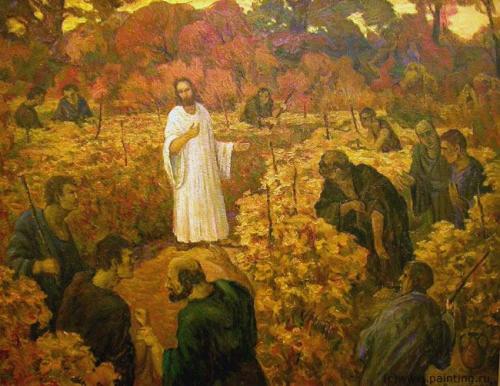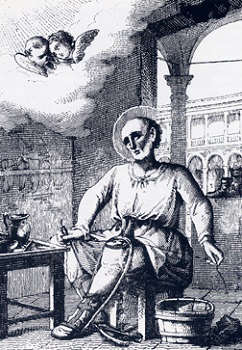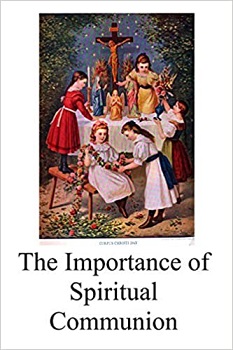August 2021: Olive Tree

Volume VI/Issue 5/August 2021


From The Editorial Desk
The Christian Culture
If you watch the networks no doubt you’ve heard the liberal media throwing “rocks” at the conservative Christian. That’s not a new development, but the pace of their cruel and bitter criticism has picked up quite a lot this year. One of their attack strategies is the targeting of what they call “Christian nationalism.”
They want everybody to believe that Christians are intolerant, even dangerous, to anyone who is not Christian. It is a lie, of course, but they are pushing that narrative in their lust for power and their determination to create a fully “secular nation.” They are attacking religious freedom especially where Christians are concerned. The precious freedom of free speech which is clearly set forth in the U.S. Constitution is also being infringed upon and threatened every single day now.
These secularists who hate Christians so intensely are the ones who are intolerant. They are the ones who silence their critics. They are the ones who revile any one who has an opinion that conflicts with the liberal narrative.
They are the advocates of “the cancel culture.” If they can’t get us to shut up, then they will try to shut us down. They are a disagreeable, anti-God, anti-Christian, anti-Constitution, group.
They say that Christians have in mind to shut everybody else out. It is an old, deceitful political ploy. They accuse their opposition of the very thing they are doing.
But let me talk about the “Christian culture.” Christians do have scruples (based on Gods Word and His Church) against theft, arson, lying and cheating.
We do have a moral compass about right and wrong.
We do have a voice which we use freely and frequently to advocate what we believe.
We do solicit others to join us and welcome them when they do.
We do not and we will not force anyone to think as we think, to believe as we believe or to do as we do. We will advocate, we will encourage and we will evangelize, but we will never coerce anyone to become a Christian.
We still stand up and use the First Amendment rights (as do our critics and our adversaries) to make the case for what the church teaches is right.
In other words, it is the “culture” of Christians to
1. Be bold, be aggressive, be straightforward in the representation of Christ and His Church.
2. Be a peaceful people; but if you make laws that go against God and the truths of His Word, our, then we will stand and speak against sin.
3. Treat others as we would like to be treated (Matthew 7:12).
4. Be the ambassadors of our Lord every day everywhere we go (II Corinthians 5:20).
5. Be a testimony to the principles we find in God’s holy Word and taught to us by His Church.
6. Be neither intimidated by opposition nor discouraged by the circumstances of these times.
7. Be relentless in the pursuit of our God-given mandates. If we lose a round or two, we will not quit. But if we become winners, we will be gracious in handling the responsibilities en trusted to us.
So let me be clear. We are living in very troubled times with lots of angry, hate-filled, belligerent opposition. The battles of 2021 are many and they are very intense.
None of us could have imagined a few years back that the country that we live in would fall apart so quickly. We are, nonetheless, in a huge conflict. The atheist, humanist, Marxist and modernists crowd has a massive presence in the USA as well as other countries and they are pushing hard to remake our country into something we have never been.
If you and I do our job as we should, that wicked, worldly crowd will hate us and they will attack us. We understand that, but we cannot quit. We must not give in to them. We are Christians and we will use our influence and whatever leverage we have to keep our “Christian culture” growing and flourishing.
Let’s not let these rock-throwing critics drive us away.
Let’s keep preaching the Gospel of the death burial and resurrection of Jesus Christ!
Let’s keep teaching the truth of the Catholic faith.
Let’s keep making Mass a priority.
Let’s keep building strong families.
Let’s keep bringing people to Christ and His Church.
Let’s keep living the Christian life.
Let’s keep standing and withstanding. Amen! And Amen!


Whatever God Wills Is Good
"For my thoughts are not your thoughts: nor your ways my ways, saith the Lord." [Isaias (Isaiah) 55:8] We are happy, when everything goes our own way and feel blessed when God has everything go our own way. However, many times God's way is contrary to our own way. We see God in blessings, but do we see God in trials and tribulations? Do we see God in a fire as much as we see in a gentle rain watering the crops?
Saint Augustine wrote: "A man who progresses during prosperity has to await times of adversity before he can learn what progress he has made. When he is rich in the goods of this world, he may be certain that he places no stock in them; but when they are taken from him, he then discovers if they had a hold on him, for generally, when we have them we think that we don't love them, but when we don't have them, then we discover that we yearn for them. The criterion is this-if we do not grieve when our goods are absent, then only can we be certain that we did not set out heart on them when they were present."
In light of what Saint Augustine wrote, a fire which takes away our goods in order to keep them from leading us to perdition is actually a blessing. Which is worse the loss of temporal goods or eternal misery? Obviously eternal misery is infinitely worse than the loss of material goods. An earthly fire is certainly better than the eternal fire of hell.
Saint Paul reminds us of Proverbs (3:12): "For whom the Lord loveth, he chastiseth; and he scourgeth every son whom he receiveth." [Hebrews 12:6] God sends us chastisements to bring us back in line or in order to prepare us for some trial He needs us for.
Saint Alphonsus said he would worry, if God did not send him tribulations. His concern is that somehow he had gotten away from God and God had decided to forget him.
The will of God is like needlepoint. My grandmother did needlepoint for a while. The front is beautiful, but the backside was a mess of various colored threads going for their next trip to the front side to form a beautiful picture. Someone observed that God is on the front side, while we are on the back side, which is why God's will does not make sense to us. We have a distorted picture, whereas God has a perfect picture or His perfect plan.
Let us remember everything God wills, no matter how good or bad we may consider it, is always truly good.


God Is Patient
Jesus Christ often taught in parables. He made things as simple as could be so that the lessons of life could be learned as easily as possible.
One of His parables might be called a parable of patience (Mark 12:1–9).
A man had a vineyard which he rented out. At harvest time he sent a servant to receive his share of the fruit. The servant was treated badly and received nothing.
After sending several servants with the same result, the man sent his son, saying, “They will reverence my son” (vs. 6). But they killed the son, thinking to seize the inheritance for themselves.
This is really the story of the hardness of our hearts; it is also the story of the patience of God.
The great King David is an example of God’s patience. When David had sinned so dreadfully, we might well have said, “Look at all God has done for him. He was found a shepherd and made into a king. God has tried to make of him a saint; now look at him! It’s no use spending more time on him.” But God was patient.
Think of the disciples of the Lord. Here they are arguing about who would be the greatest in the kingdom of Heaven (9:33,34). After all those years of training, it seemed that they had not learned even the simplest lesson. But God was patient with them.
Before we judge so quickly, we need to think of how patient God has been with you and me. Think of the many chances He has given us to rise up and walk as we should.
He spoke to us again and again when we did not listen. Just as the vineyard owner patiently sent servant after servant for the fruit and finally sent his son, so God deals patiently with us.
Some have rightly spoken of the Lord as “the Hound of Heaven.” The Lord sets Himself to seek us and then patiently pursues us that He may bless us.
There is another lesson in the parable, one which is harder to learn. There is a progression of evil in the story: one servant beaten, the next stoned, the next killed.
Trivial things do not remain trivial. Cain first envied his brother and then killed him. Sin does not relinquish its hold on us easily. We go from tolerating sin to loving it.
Once we were shocked at things which we now accept with a shrug of our shoulders. Acts become habits, habits form character and character determines consequences. The time to destroy evil is when it is young.
You dare not pity it nor play with it; you must put it out of your life. If you do not, it will grow until it becomes your master and you will hardly be aware of its hold on you.
In the parable the master raised the question, “What shall I do?” (Luke 20:13). God was not baffled with our hardness, as the parable aptly teaches: He sent His Son to seek and to save. But choosing to honor the Son is a personal thing. It is easy to patronize Jesus or to pity Him, then to lock Him out of our hearts.
In the parable they killed the son; we are too civilized for that. We just ignore Him. Yet God is patient.


Two Standards
In the Spiritual Exercises of St. Ignatius we will come across a meditation on the two Standards, namely : Standard of Christ and the Standard of Satan. The Standard of Christ are Poverty, Humiliation and Humility. The Standard of Satan are Richest, Honor and Pride.
Poverty doesn't mean misery. It doesn't mean you don't have possession. Poverty means Simplicity. You do not live beyond your means. You do not spend too much. You buy things which are necessary, things which are needed and not just wants. Poverty is relying on God as your source of supply.
Humiliation is to ability to suffer non recognition and shame on account of your faith in Jesus Christ. Humiliation is the ability to suffer persecution because of your faith.
Lastly, Humility does not mean denying your talents. It is rather recognition of your skills as given by God. In as much as Humility means truth. Humility is the key to finding God in all things.
May we emulate the Lord Jesus Christ by putting on the Standard of Christ

Talents and Time
In the Gospel according to Saint Matthew (14:22-34), the Lord instructs us with a parable. In the parable, we have a king who is settling accounts with his servants. One servant is brought before the king, and this servant owes the king a huge amount of money – ten thousand talents. Now, ten thousand talents would be the equivalent of about a half a billion dollars if we’re talking silver talents, and if they’re gold talents, then more than thirty-seven and a half billion dollars. So this is no small debt – and this servant had no means to pay the debt, the parable tells us. The king at first demands that the servant and his family be sold off as slaves, in order to make good the debt. But the servant fell down before the king and begged him to have patience, and he would pay the entire debt. The king was moved with pity and forgave the debt of his servant.
Then, as we heard, the servant goes out and meets a fellow-servant. And this fellow-servant happened to owe him a hundred pence – a dollar. And the servant who was owed a dollar throttles the fellow-servant, and demands to be paid what he was owed.
The fellow-servant, fell down before him and begged him to be patient, and he would repay him all, just as this servant himself had just done before the king.
The servant would have none of it, and had the fellow-servant, the one who owed him all of one hundred pence, thrown into prison until he had paid the debt.
Then, as the Gospel tell us:
[H]is fellow servants seeing what was done, were very much grieved, and they came and told their lord all that was done. Then his lord called him; and said to him: Thou wicked servant, I forgave thee all the debt, because thou besoughtest me: shouldst not thou then have had compassion also on thy fellow servant, even as I had compassion on thee? And his lord being angry, delivered him to the torturers until he paid all the debt. So also shall My heavenly Father do to you, if you forgive not every one his brother from your hearts.
A sobering parable! For before God, we all owe a debt of ten thousand talents, because of the good things and gifts we receive from Him and for which we have no concern. Every day itself is a precious gift that no amount of money could purchase. We are given each day the gift of life, and in our ingratitude we choose death. We have the gift of our free will – something not even then thousand talents could purchase – and yet we use it to take the days we have, the gifts we receive, the opportunities in our grasp, even each other, for granted, not appreciating the preciousness of every moment.
And in our lack of appreciation, we fall into chains of our own making. Our debt before God is unfathomable, nearly incomprehensible, much like the ten thousand talents owed to the king by the wicked servant.
The debts and the offenses of our brothers and sisters against us often are, in comparison, minuscule, like the hundred pence owed by the fellow-servant.
Seeing how great a debt it is that we owe before God, then if we ourselves do not show mercy to those who desire forgiveness of us, then we will quickly lose the pardon which God grants us when we pray and entreat Him, and we will be required to answer for all that we have squandered, all that we have wasted.
This is the heart of the parable. This is how we must live with the precious time that we have been given.
Our vocation is two-fold: We must acknowledge our own debt before the eternal King and just judge, and we forgive others their trespasses.
The state of grace in the soul is quickly lost when one refuses the charity of forgiveness to another. One who is truly honest, truly humbled, truly mindful of his or her own failings is be quick to forgive a neighbour. And in this, the Lord does not seek the forgiveness which comes merely from the lips; He commands us to grant forgiveness which is from the heart.
And we stand in sore, sore need of forgiveness – both the forgiveness of God for our many, many grave and public sins, and the forgiveness of each of us one to another. If we cannot forgive each other, then we make a lie out of and mock the forgiveness that God offers us.
Let us be honest about the kind of person we have been, and how many good things we have received from the Lord. And then how is it that we don’t have any appreciation for these good things that we have received – at least until they are taken away from us?
All of us have in our lives gone astray, every one of us for his or her own purposes. In our ingratitude we then commit sins of bringing other people into disgrace, injuring others and ourselves, fostering and spreading this deadly spirit of ingratitude. Each of us alone can answer in our hearts to what we have done with the great and many talents we have received from the eternal King. And so we must.
So let us, then, come to our senses. Let us joyfully forgive the little debts of our neighbours, whether it be a matter of money, or contempt, or abusive words, or anything else. Let us never return ingratitude for ingratitude. Let us joyfully forgive the little debts of our neighbours, that we may receive the greater forgiveness from God, and become heirs of His kingdom, of which may we all be counted worthy, please God, in the world to come.

The Funny Pharmacy
A joyful mind maketh age flourishing: a sorrowful spirit drieth up the bones. - Proverbs 17:22






Frequently Asked Questions

Do you believe it is possible for ardent Buddhists or Protestants to be saved?
Let me break down your question as I answer it.
1. It does not matter what I believe or what anyone else believes. It is what the Word of God says and what the Church, who has been given authority to instruct and interpret the Word of God says.
2. The definition of ardent is: enthusiastic or passionate. With that definition in mind, let us understand the difference between the Buddhist and the Protestant.
3. Buddhist do not believe that Jesus is God, so in there enthusiasm or passion for Buddhism they can not be saved in that state. Now God may see their enthusiasm and passion for God and bring things into their lives to bring them toward a faith in Jesus. An example would be “Cornelius, a centurion, a just man, and one that feareth God, and having good testimony from all the nation of the Jews” See Acts 10
It is important to determine what any belief system teaches about the deity of Christ. The Scripture is clear concerning the Word (Jesus) becoming flesh, and that Jesus is the true God and the only way to eternal life (see John 1:1–18; 1 John 5:20). The New Testament reveals that Jesus is equal with God the Father in all attributes of deity, and thus the substance of deity (Phil. 2:6), and (Col. 1:19). Our confession of Jesus as Lord includes acknowledgment of His deity: Only God can save us from sin.
4. Concerning ardent Protestants: your question is very broad. We can only assume that this ardent Protestant believes that Jesus is God, and we can only assume that they have repented and been baptized for the remission of their sins. Then as an ardent Protestant it can only be assumed that they have a desire to learn and know more and more about God. We are always growing. If a Protestant has been presented with the truth of the Catholic Faith and is allowing the Spirit of God to work within themselves a greater understanding of and an acceptance of the Faith, then they stand on the path which could ultimately lead them to salvation, which is found only within the Church. Such a person should be encouraged in their spiritual growth.
In short, a Protestant who is genuinely ardent will ultimately be led to the Catholic Church, wherein is salvation.
For answers to more frequently asked questions, click here: https://www.vaticaninexile.com/frequently_asked_questions.php
The Pope Speaks: August 2021
Study Rules

Sacred Study requires the consecration of our life to Almighty God and His holy service. "No man, being a soldier to God, entangleth himself with secular businesses; that he may please him to whom he hath engaged himself." (2 Timothy 2:4) This is why Bishops and Pastors as well as other clergy assisting them should be freed as far as is possible from secular work, because they are dedicated to the work of God by their holy office. The work of Pastor is indeed a large work, which takes the time, energy and dedication of those who hold this office.
"Priests who have only a handful of souls may become theologians and authors, and may serve the Church more lastingly by their writings than by their activity. Leisure and tranquility are two necessary conditions for sacred study. “The charm of leisure must not be indolent vacancy of mind, but the investigation or discovery of truth, that thus every man may make solid attainments without grudging others to do the same." (Augustine City of God Book 19, Chapter 19)" (The Eternal Priesthood, Henry Edward Cardinal Manning, page 84)
All are called to study of the Sacred Sciences, especially of Sacred Scripture. Let us consider the conditions needed for Sacred Study to be fruitful. The first requirement is a love of the Truth. "And in all seduction of iniquity to them that perish; because they receive not the love of the truth, that they might be saved. Therefore God shall send them the operation of error, to believe lying: That all may be judged who have not believed the truth, but have consented to iniquity." (I Thessalonians 2:10-11) The truth is the center of our Faith, for God is Truth.
The next requirement is a sincere and true humility, remembering what manner of man we are. Any progress in Sacred Science comes from Almighty God. Saint John Climacus says: "Pride makes us forget our sins, for the remembrance of them leads to humility." As the Psalmist says: "For I know my iniquity, and my sin is always before me." (Psalms 50:5) "Let nothing be done through contention, neither by vain glory: but in humility, let each esteem others better than themselves: Each one not considering the things that are his own, but those that are other men's." (Philippians 2:3-4)
We must all be selfless, especially those of us undertaking sacred study. "Charity seeks not her own" (I Corinthians 13:5) We do not undertake sacred study for our own benefit, but so that we may benefit others. "But sanctify the Lord Christ in your hearts, being ready always to satisfy every one that asketh you a reason of that hope which is in you." (1 Peter 3:15)
Saint Thomas Aquinas said he did his best work before the tabernacle. It is this dedication to prayer that is also essential, because without prayer our work is worth less than nothing. It was a departure from prayer that led to Luther's apostasy from the Faith. Let us remember that the clergy are humble men of prayer. And all are called to a life of prayer: "Pray without ceasing." (1 Thessalonians 5:17) This means we live a life always in connection with Almighty God. "Therefore, whether you eat or drink, or whatsoever else you do, do all to the glory of God." (1 Corinthians 10:31) We should start every action of ours for Almighty God, no matter how trivial it may seem.
"Therefore, behold I will allure her, and will lead her into the wilderness: and I will speak to her heart." (Osee 2:14) The word that is here translated as wilderness is solitudinem, from which we get the word solitude. Now this is a spirit of solitude, not a mere retirement to a place of solitude. We can retire to the wilderness and yet take the noise of the world with us in our heart. In fact, we can take the noise of the world with us with out Ipods, phones, etc. We have seen someone who was off grid with no signal, plugging into the world as best as he could, which is not what we should be doing. Others can achieve the spirit of solitude amidst the noise and distractions of the world by being at peace in their heart.
We should consider this solitude in greater detail. We need to acquire the spirit of silence, retiring away from the noise of the world. St. Bernard says: "Silence and the absence of noise in a certain manner force the soul to think of God and of eternal goods." Saint Alphonsus reports: "One day our Lord said to St. Teresa: 'Oh, how willingly I would speak to many souls, but the world makes so great a noise in their hearts that My voice cannot be heard! Oh, if they would but separate themselves a little from the world!'" The prophet, Isaias (30:15) writes: "For thus saith the Lord God the Holy One of Israel: If you return and be quiet, you shall be saved: in silence and in hope shall your strength be." This spirit of silence and retirement from the world is essential to sacred study.
Tranquility and serenity are also essential to Sacred Study. "A double minded man is inconstant in all his ways." (James 1:8) To be single minded or simple is essential to achieve this tranquility, which requires removing all that is not of God in our lives. We need to imitate Mary Magdalene and choose the best part. An agitated heart is the enemy of Sacred Study. Jesus says: "Peace I leave with you, my peace I give unto you: not as the world giveth, do I give unto you. Let not your heart be troubled, nor let it be afraid." (John 14:27) Saint Paul tells the Colossians (3:15): "And let the peace of Christ rejoice in your hearts, wherein also you are called in one body: and be ye thankful."
Another danger to be avoided is working too much. We can become so absorbed in holy work, that we forget the more important part, that is holy contemplation. Several Catholic authors consider that two to six hours a day is the most we should dedicate to concentrated work. And we should not work seven days a week, but take a rest as God did after the creation. We need to get away from the serious work and retire to prayer and time with God. We also need to get away for a walk or other diversion. The story is told of Saint John the Evangelist towards the end of his life. He was taking a break from contemplation and playing with a partridge. Someone chastised him for this. He said we all need to take a break.
There is danger in too much study. Father Faber considers some the cures for lukewarmness, among which is: "The second is, not having many things to do. It is no use. The times are busy. But we cannot save our souls if we have so many things to do. But the remedy? Good soul! There are some knots in life which cannot be untied; the thing is to cut them, and leave the consequences to help themselves. If you have more duties to do than you can do well, you must boldly neglect some of them. Only have faith, and God will spirit the consequences away, so that you will see nothing more of them." And let us consider Martin Luther wrote a letter before his defection from the Faith: "I could use two secretaries. I do almost nothing during the day but write letters. I am a conventual preacher, reader at meals, parochial preacher, director of studies, overseer of eleven monasteries, superintendent of the fish pond at Litzkau, referee of the squabble at Torgau, lecturer on Paul, collector of material for a commentary on the Psalms, and then, as I said, I am overwhelmed with letters. I rarely have full time for the canonical hours and for saying Mass, not to mention my own temptations with the world, the flesh, and the Devil. You see how lazy I am."
Over work leads us to so concentrate on work, that we leave the important part. And this danger is especially present in sacred study. Saint Paul warned the Corinthians (I Corinthians 8:1): "Knowledge puffeth up; but charity edifieth." Saint Thomas Aquinas says: "If study does sometimes become an act of supernatural contemplation, it is inasmuch as by study we are led on to the love of God." The main reason for sacred study is to come closer to God. In fact, our first goal is our own sanctification without which our preaching will be in vain.
Today's world is inspired by Calvinism, which gave birth to the Protestant Work Ethic. This idea sees taking holy leisure to prepare for a return to prayer and to work as an evil. We must constantly be at work, like Luther above. Luther wrote: "I rarely have full time for the canonical hours and for saying Mass." One can reasonably presume Luther had no time left for prayer, which is why he became a heretic. He was lecturing on Saint Paul and writing a Commentary on the Psalms, but was most likely taking none of this to heart. There is much good in Saint Paul's Epistles and in the Psalms, but our study can easily become dry and worthless. In Acts (18:3) we read that Saint Paul made tents. While occupied in humble work, we can come closer to God, because humility is essential to a preacher.
In Wisdom we read: "Before prayer prepare thy soul." (Ecclesiasticus 18:23) In order to preach well, we must first of all be men of prayer, which requires this preparation for prayer. Preachers must live the Gospels. Let us consider the example given by our Lord Jesus Christ. "And when he had dismissed them, he went up to the mountain to pray." (Mark 6:46) After preaching He prayed. He also prayed before choosing the Apostles: "And it came to pass in those days, that he went out into a mountain to pray, and he passed the whole night in the prayer of God." (Luke 6:12)
A Dominican, Antonin Sertillanges, wrote a work, The Intellectual Life on Sacred Study. Let us consider something he said: "Those two hours are given to concentration, but the consecration of the whole life is none the less necessary." Elsewhere he notes that two to six hours are the most one can devote to concentrated study, because of the depth of the material. More important is how we spend the 167 hours outside of the pulpit, than the hour we spend within it. It is the sanctification of our life that is more important than what we preach. In fact, we are preaching by the way we live far more than by what we say.
Arm Chair Conversations With Pope Michael: Holy Leisure


Saint Mark the Ascetic
On The Spiritual Law

132. It is better to pray devoutly for your neighbor than to rebuke him every time he sins.
133. The truly repentant is derided by the foolish - which is a sign that God has accepted his repentance.
134. Those engaged in spiritual warfare practice self-control in everything, and do not desist until the Lord destroys all 'seed from Babylon' (Jer. 27:16).
135. Suppose that there are twelve shameful passions. Indulging in any one of them is equivalent to indulging in them all.
136. Sin is a blazing fire. The less fuel you give it, the faster it dies down; the more you feed it, the more it burns.
137. When elated by praise, be sure disgrace will follow; for it is said: 'Whoever exalts himself will be abased' (Luke 14:11).
138. When we have freed ourselves from every voluntary sin of the mind, we should then fight against the passions which result from prepossession.
139. Prepossession is the involuntary presence of former sins in the memory. At the stage of active warfare we try to prevent it from developing into a passion; after victory it is repulsed while still but a provocation.
140. A provocation is an image-free stimulation in the heart. Like a mountain-pass, the experienced take control of it ahead of the enemy.
Saints from East and West

12 August- Saints Anicetas and Photius.
The Martyrs Anicetas and Photius (his nephew) were natives of Nicomedia.
Anicetas, a military official, denounced the emperor Diocletian (284-305) for having set up in the city square an implement of execution for frightening Christians. The enraged emperor ordered Saint Anicetas to be tortured, and later condemned him to be devoured by wild beasts. But the lions they set loose became gentle and fondled up to him. Suddenly there began a strong earthquake, resulting in the collapse of the pagan temple of Hercules, and many pagans perished beneath the crumbled city walls. The executioner took up a sword to cut off the saint's head, but he himself fell down insensible. They tried to break Saint Anicetas on the wheel and burn him with fire, but the wheel stopped and the fire went out. They threw the martyr into a furnace with boiling tin, but the tin got cold. Thus the Lord preserved His servant for the edification of many.
The martyr's nephew, Saint Photius, saluted the sufferer and turn to the emperor, remarking: "O idol-worshipper, thine gods be nothing!" The sword, held over the new confessor, instead struck the executioner himself. Then the martyrs were thrown into prison. After three days Diocletian began to urge them: "Worship our gods, and I shalt give ye glory and riches." The martyrs answered: "Perish thou with thine honour and riches!" Then they tied them by the legs to wild horses, but the saints, dragged along the ground, remained unharmed. They did not suffer either in the heated up bath-house, which tumbled apart. Finally Diocletian ordered a great furnace to be fired up, and many Christians, inspired by the deeds of Saints Anicetas and Photius, went in themselves with the words: "We are Christians!" They all died with prayer on their lips. The bodies of Saints Anicetas and Photius were not harmed by the fire, and even their hair remained whole. seeing this, many of the pagans came to believe in Christ. This event happened in the year 305.

13 August - Blessed Novellone of Faenza.
Novellone is one of those who, from among the numerous lay-people who in all ages and places live a life of heroic sanctity in the world, have been chosen by Almighty God to be withdrawn from their obscurity and raised to the altars of the Church.
Novellone (c. 1280) was a native of Faenza and by trade a shoemaker. He did not grow up in the fear of the Lord, and his godless life was in no way altered when he received the sacrament of matrimony. But at the age of twenty-four he had a serious illness; fear of death opened his heart to grace; he resolved to amend his life, and as an aid thereto became a tertiary of Saint Francis. He imposed mortifications on himself and gave all he could to the poor, went on pilgrimage to Rome and then, bare-footed, to Compostela, scourging himself as he went.
But now he had much to suffer from his wife, who complained of his long absences from home and of his charity to the poor; but she was changed one day when, a beggar coming to the door, the larder that a few minutes before had been empty was found to be well stocked with food.
After the death of his wife Novellone reduced himself to want by his benefactions and sought to lead the life of a hermit. In order to do this, he is said by some writers to have entered the Camaldolese order, but he seems simply to have taken up his residence beside the cell of a Camaldolese hermit, one Laurence, at Faenza. After edifying his fellow citizens for fifty-six years Novellone died and was buried in the cathedral of Faenza. His cultus was approved in 1817.

Advice You Can Bank On
A Catholic Perspective On Finances
What is a key to being content in riches or poverty?
Understanding Cycles of Riches and Poverty
learning to be content at all times
Riches and poverty are not permanent conditions in the life of an individual, family, or nation. They are variable factors that are related to the higher purposes that God achieves through them.
Cycles of Riches and Poverty
Through our experiences, we face cycles of riches, financial tests, poverty, and growth in faith that can help us learn to be content in all things. In whatever season you find yourself, seek to honor God and welcome His work in your life.
-
Riches: God “. . . hath given thee strength to get wealth . . .” (Deuteronomy 8:18). Through the wise use of abilities, an open door of opportunity, or a gift of inheritance, wealth increases. In times of prosperity, heed God’s warning to the rich: “Be not high-minded; nor trust in uncertain riches, but in the living God, who giveth us richly all things to enjoy . . . do good . . . be rich in good works . . .to give easily, to communicate to others ” (I Timothy 6:17–18).
-
Financial Tests: “. . . If riches increase, set not your heart upon them” (Psalm 62:10). When you have wealth, do not resist the opportunities you have to see and meet the needs of others. Be careful to discern the motives of those who may seek your aid, and resist temptations to do evil. Dedicate your riches to God, and purpose to use them in ways that honor Him.
-
Poverty: “. . . The Lord gave, and the Lord hath taken away: as it hath pleased the Lord so is it done: blessed be the name of the Lord. ” (Job 1:21). Many things can occur to cause a season of poverty in your life. Sacrificial giving, investments gone bad, or acts of God can deplete your resources.
-
Growth in Faith: “. . . Hath not God chosen the poor in this world, rich in faith, and heirs of the kingdom which God hath promised to them that love him?” (James 2:5). When you face financial needs, you have great potential to grow in faith. Trust in God, claim His promises to provide for you, and pray.
Examples in Scripture
In the Bible there are many examples of the fluctuation of wealth. In these stories, we can see the purposes that God accomplished through the cycles of wealth and poverty.
Job—See Job 1:1–2:10 and 42:1-17.
-
Job was an honorable, wealthy man.
-
He provided well for his family and gave to the poor.
-
When God tested him, all of Job’s riches were taken away.
-
Job’s faith in God did not crumble, even though he did not understand his change of fortune.
-
After Job’s testing, God blessed Job with greater abundance than he had before.
Joseph—See Genesis 37–50.
-
Joseph was a favored son and he received great honor and costly gifts.
-
His father sent him to find out how his brothers were doing.
-
When Joseph arrived, his brothers abused him and sold him as a slave.
-
Joseph became a trustworthy slave in Egypt, but he was imprisoned as a result of a false accusation.
-
During these years of misfortune, Joseph trusted God and developed a servant’s spirit.
-
In time Joseph offered wise counsel to Pharaoh. He became a revered leader in Egypt and helped the nation prepare for and endure seven years of famine.
-
When Joseph’s family came to Egypt to buy food during the famine, they became reunited with Joseph.
Nebuchadnezzar—See Daniel 4:30–37.
-
God gave the Assyrian king Nebuchadnezzar riches and power and strength and glory.
-
However, the king said in his heart that his own mighty hand had gained the kingdom.
-
God humbled Nebuchadnezzar, took away his reasoning mind, and the king consequently was unable to enjoy all of his wealth and honor.
-
When God restored Nebuchadnezzar’s mind, Nebuchadnezzar worshiped and blessed God. After this, Nebuchadnezzar resumed the responsibilities of ruling his kingdom.
Learning to Be Content With Basics
The Apostle Paul experienced a wide range of financial situations. In the midst of each of them, he found that God was faithful to provide for his needs and he learned to be content in whatever state he found himself.
Paul knew how to abound:
-
To be grateful for provisions that were given him by fellow Christians
-
To enjoy an abundance of food
-
To appreciate honor and recognition when it came
-
To appreciate physical comforts if they were available
-
To accept the help that came from others
-
To be pleased when outward circumstances worked out according to his plans
-
To feel at home in friendly surroundings
Paul knew how to suffer need:
-
To be silent about his needs when there was no provision for them
-
To endure hunger when there was insufficient food
-
To accept rejection and neglect when it came
-
To get along without material things when they were not there
-
To do without physical comforts if they were not available
-
To draw upon the inner resources of Christ’s strength
-
To be cheerful when outward circumstances did not work out according to his plans
-
To be homeless and to face death
Paul wrote: “. . . For I have learned, in whatsoever state I am, to be content therewith. I know both how to be brought low, and I know how to abound: (everywhere, and in all things I am instructed) both to be full, and to be hungry; both to abound, and to suffer need. I can do all these things in him who strengtheneth me” (Philippians 4:11–13).

 Family Matters
Family Matters
Your First Love
Let me take you on a journey back into your past for a few moments. Remember how it was when your first child was born. Pause for a few moments and let your mind drift back there. Think about those first few days with your first child. You were in awe. It staggered your emotions as you held that little image of you in your arms or nursed it at your side. remember how you felt.
I can quickly recall the memories of our first child, and all the rest of them for that matter. My wife and I said to each other with joy, "This is our baby. She looks like us, bone of our bones and flesh of our flesh, a gift from God." We sat there overwhelmed with the responsibility of caring for this child entrusted to us. We were in our "first love" experience, as parents, and emotion ran high. I am sure you had a similar experience.
Let me explain what I mean when I use the phrase "first love." We all understand the principle of first love, taught in the Bible. God uses the phrase as He pleads with the church at Ephesus in Revelation 2:4-7. He said to them "Thou hast left thy first love (charity)". God was reminding them of the sweet love they had for Him in the early days of their church. You can read about it in Acts 19. The first love is the foundation stone on which a lifetime of love for God is built. It grows, deepens, and matures through the years.
This principle also applies to the commitment of marriage. We all remember our wedding day, and the glorious days of courtship before the wedding. That first love experience wrought lifelong vows that flowed from our hearts. we are supposed to build on top of that foundation all our days of marriage.
It is the same with the birth of each one of our children. Have we lost our first love for the children? Many times we start out right, but then other things distract us. Six of our eight children were born at home, which is a wonderful, deeply moving experience. With each birth, the Spirit of God drew near when the child came forth. Many midwives would agree with me that God is there in a special way when a child is born. I believe God sanctifies that sweet time of birth to bond parents and child together into a lifelong relationship of love. He does this so the parents will be moved to raise the children for Him. This relationship is the foundation stone upon which a powerful God-honoring life is built.


Books to feed your faith!

A Catholic Viewpoint on the Four Temperaments
$9.99
This is a compilation of information from several older works, which have been brought together to explain this most important consideration in the spiritual life. We begin with a short consideration from Father Scaramelli, who died in 1752. He wrote a four volume work, Directorium Asceticum, which is an excellent treatise on the spiritual life. He touches on the four temperaments briefly. We will expand with the thoughts of Father John Henry Schagemann CSSR from his work, Manual of Self-Knowledge and Christian Perfection. This work is in two parts the first on the Four Temperaments and the balance is a excellent summary of the spiritual life. The first part of this 1913 work is reproduced here. The balance of this work is inspired by Konrad Hock, who wrote The Four Temperaments. There is a great deal of interest in self-examination in these days and the four temperaments are a great guide to understanding ourselves, our strengths and our weaknesses. Some misuse this information in order to find an excuse for sin, but there is no excuse for sin. Knowing our temperament, we can know where our strengths and weaknesses lie and with the help of God over come our weaknesses and build upon our strengths The four temperaments are based upon the four humors ancient philosophers believed exist in the human body: Melancholy, (Melancholic) Phlegm, (Phlegmatic) Blood (Sanguine), Choler (Choleric or Bilious). We begin with a test to determine our temperament, so we can know where we stand entering into our study.

Meditations on the Love of God
$12.95
DIEGO DE ESTELLA, the author of the work from which the following pages have been translated, was born A. D. 1524, at Estella, in the Kingdom of Navarre. In due course he assl.uned the cowl of the Order of S. Francis, as one of the Friars Minor of the Regular Observance, at Salamanca. He was appointed Royal Preacher, Adviser and Theologian to King Philip II., and became Confessor to Cardinal Granvela. To his pen we owe, besides several works in Latin, the following written in Spanish: 1. De la vanidad del mundo; 2. Meditaciones del Amor de Dios; 3. La vida y excelencias de san Juan Evangelista. The first of these works was one of the very few books recommended by Dona Oliva de Sabuco; the second is the subject of the present translation. Diego died at Salamanca, 1st August, 1578, aetat. fifty-four. ALL Thy creatures declare to me, O Lord, that - I should love Thee, and in everyone of them I discover a tongue which proclaims Thy goodness and greatness. The beauty of the heavens, the brightness of the sun and moon, the effulgence of the stars, the splendour of the planets, the currents of the waters, the verdure of the fields, the diversity of flowers, the variety of colours, and all that Thy divine hands have made, O God of my heart and Spouse of my soul, tell me that I should love Thee. Everything that I see invites me to Thy love, and reproaches me when I love Thee not. I cannot open my eyes without beholding preachers of Thy most exalted wisdom! I cannot open my ears without hearing those who proclaim Thy goodness; for everything that Thou hast made tells me, O Lord, what Thou art.
Will the Real Catholic Church Stand Up?
Kindle $2.99 / Paperback $9.95

The Importance of Spiritual Communion
Kindle $2.99 / Paperback $5.99
If we cannot receive Holy Communion actually, then let us do so spiritually. These prayers and instructions have been gathered from the Saints and other venerated spiritual writers. Spiritual Communion has been a part of the spiritual life for decades. Growing up I was instructed to make a Spiritual Communion, when I could not go to Communion such as when I assisted at a second Mass. The same is true if one finds oneself at Mass, but not fasting. There are times coming, when it will be difficult, if not impossible to assist at the Holy Sacrifice of the Mass. We should be prepared for such times.
For More Good Traditional Catholic Books:

Simple Summer Corn Salad

Ingredients
6 ears corn, husked and cleaned
3 large tomatoes, diced
1 large onion, diced
¼ cup chopped fresh basil
¼ cup olive oil
2 tablespoons white vinegar
salt and pepper to taste
Directions
1. Bring a large pot of lightly salted water to a boil. Cook corn in boiling water for 7 to 10 minutes, or until desired tenderness. Drain, cool, and cut kernels off the cob with a sharp knife.
2. In a large bowl, toss together the corn, tomatoes, onion, basil, oil, vinegar, salt and pepper. Chill until serving.
Grandmother Hubbard's Strawberry Shortcake
Ingredients
3 pints fresh strawberries
½ cup white sugar
2 ¼ cups all-purpose flour
4 teaspoons baking powder
2 tablespoons white sugar
¼ teaspoon salt
⅓ cup shortening
1 egg
⅔ cup milk
2 cups whipped heavy cream
Directions
1. Slice the strawberries and toss them with 1/2 cup of white sugar. Set aside.
2. Preheat oven to 425 degrees F (220 degrees C). Grease and flour one 8 inch round cake pan.
3. In a medium bowl combine the flour, baking powder, 2 tablespoons white sugar and the salt. With a pastry blender cut in the shortening until the mixture resembles coarse crumbs. Make a well in the center and add the beaten egg and milk. Stir until just combined.
4. Spread the batter into the prepared pan. Bake at 425 degrees F (220 degrees C) for 15 to 20 minutes or until golden brown. Let cool partially in pan on wire rack.
5. Slice partially cooled cake in half, making two layers. Place half of the strawberries on one layer and top with the other layer. Top with remaining strawberries and cover with the whipped cream.
Video sermons and instructions: Timeless timely truths for living the Faith
Assumption 2012
Show Me Your Scars
The Necessity of Mortification
Arm Chair Conversations With Pope Michael: Holy Leisure
What are the Ten Commandments?

Encouragement for Today
Therefore encourage one another and build one another up.... I Thessalonians 5:11
We believe that through our assorted podcasts, Vlogs, audio downloads and devotional blogs, you will find an assorted Treasure Chest of...
- Sermons
- Classic Catholic Audio Books.
- Devotionals
- Scripture Studies
- Catechism Lessons
- Old-Time Christian radio programs
- Catholic Videos
...that will be a help in your faithful walk with the Lord.
LEARN MORE AT THE ENCOURAGEMENT FOR TODAY WEBSITE: https://www.encouragementfortoday.com
THE SPIDER AND THE FLY
“Who is like to thee, among the strong, O Lord? Who is like to thee, glorious in holiness, terrible and praiseworthy, doing wonders?” Exodus 15:11

One would never expect to find any insect sharing living arrangements with a spider. That’s why scientists were amazed to find a tiny fly in the rain forests of Central America who shares both room and board with a spider!
The fly spends most of his time on the back of the golden web spider, who does not seem to object. This spider does not deal with its victims in the same way most spiders do. When a large insect gets caught in the tough web of the spider, the golden web spider injects the victim with digestive juices to prepare it for eating. The fly keeps track of meal preparations from the spider’s back. Just before the meal is liquefied to the spider’s satisfaction, the fly buzzes over and drinks its fill in a few seconds. By the time the spider approaches lunch, the fly is back napping on the spider.
Both the spider and the fly are designed with special features to make this most unlikely arrangement work. If the golden web spider’s eating habits were like most spiders’, there would be no liquefied meal for the fly. The fly itself has a mouth that is specially designed to allow it to drink a full meal in seconds. This helps keep him out of the spider’s way.
How can a spider and a fly live together? God can design a solution to any problem. Why design an arrangement between a spider and a fly anyway? So that we would know there is a Creator and that He can meet any challenge! There is nothing you cannot take to Him in the name of His Son, our Lord and Savior Jesus Christ.
Catechism Catch-Up
On Earth As It Is In Heaven
We are to pray, "Thy kingdom come. Thy will be done on earth AS IT IS IN HEAVEN" (Mathew 6:10) How is God's will done in heaven? Let me mention four things.
First of all, the angels are in a perpetual state of WAITING UPON GOD for His commands.
They don't run around heaven trying to do 'something for God' according to their own ideas. No. They wait for God to speak first - and only then do they act.
God says, "I'm looking for one who will wait and watch For My beckoning hand, My eye - Who will work in My manner the work I give, And the work I give not, pass by. And oh the joy that is brought to Me When one such as this I can find - A man who will do ALL My will, Who is set to study his Master's mind"
So, when we pray "Thy will be done on earth as it is in heaven," it means, first of all that we want to hear what God has to say to us.
Secondly, when God speaks, the angels obey IMMEDIATELY.
They don't say "Lord, I'll wait a few days and think about it. I want to find out what my fellow angels think about this." There's no such thing in heaven. When God has spoken, that is final. Obedience is immediate.
Our prayer then should be, "Father, help me, that I don't delay when I hear Your voice. I don't want to rush ahead of Your time, but once You have spoken I want to obey immediately."
Then thirdly, when God commands something in heaven, it is done COMPLETELY.
Those angels don't go out and obey God partially. Our prayer therefore should be, "Father, help me to do ALL your will in my life - to obey every commandment completely, whatever the cost."
And finally, the obedience of the angels is JOYFUL.
They are not grudging and complaining in their obedience. No angel compares his task with another's and says, "Lord, why have You given me a more difficult task than You've given that angel" etc.,
We hear such complaints even among Christians, "Why should I make all the sacrifices? What about him/her," etc., But we never hear such words from the angels in heaven. They consider it a privilege to do anything for God and they rejoice at every opportunity to obey Him.
And so when we pray this prayer, we are asking that God's will may be done on earth and in our lives like that - joyfully and without any complaints and without any comparisons with others.
READ MORE FROM THE TRADITIONAL CATECHISM AT THE WEBSITE: https://www.traditionalcatechism.com
Living Catholic:
Some Of God’s Purposes For Allowing Adversity In Our Life

James the Apostle recommended a surprising response to troubles: “My brethren, count it all joy, when you shall fall into divers temptations; Knowing that the trying of your faith worketh patience. And patience hath a perfect work; that you may be perfect and entire, failing in nothing.” (James 1:2–4).
The Apostle Paul expressed a similar perspective on adversity: “And not only so; but we glory also in tribulations, knowing that tribulation worketh patience; And patience trial; and trial hope; And hope confoundeth not: because the charity of God is poured forth in our hearts, by the Holy Ghost, who is given to us. For why did Christ, when as yet we were weak, according to the time, die for the ungodly?” (Romans 5:3–6).
These Saints understood that in light of what Christ did for us by providing salvation, the difficulties we experience in this life take on new meaning. They are a means through which God works to accomplish His will in our lives: to shape us so that we reflect the character of Christ. (See Romans 8:28–30.) On the basis of this purpose, all adversity “works together” for our good and God’s glory.
Adversity gets our attention.
When adversity comes, we are forced to face problems and pressures that are too big for us to resolve. In this way, God gets our attention. We can’t continue to pursue our goals, tasks, and relationships in the same manner. We have to stop and evaluate our situation, ask God for wisdom, obey His Word, and trust Him to bring the help we need.
Troubles point out our weaknesses and prompt us to rely on God in ways that we wouldn’t unless we had significant needs. Christ’s invitation to those who are weary becomes very attractive in the midst of trials: “Come to me, all you that labour, and are burdened, and I will refresh you. Take up my yoke upon you, and learn of me, because I am meek, and humble of heart: and you shall find rest to your souls. For my yoke is sweet and my burden light.” (Matthew 11:28–30). Adversity is a classroom in which we can learn more of Christ and become more like Him.
As we come to God with our needs, our inward prayer should echo these words of the Psalmist: “To thee, O Lord, have I lifted up my soul.
O my God, I trust in thee: In thee, O my God, I put my trust; let me not be ashamed. ” (Psalm 25:1–2).
Adversity reminds us of our weaknesses.
The Apostle Paul knew what it meant to live with adversity that would not go away. He learned to see the good that God intended to bring to his life through it and to rejoice in God’s design. He wrote: “And lest the greatness of the revelations should exalt me, there was given me a sting of my flesh, an angel of Satan, to buffet me. For which thing thrice I besought the Lord, that it might depart from me. And he said to me: My grace is sufficient for thee; for power is made perfect in infirmity. Gladly therefore will I glory in my infirmities, that the power of Christ may dwell in me. Therefore I take pleasure in infirmities, in reproaches, in necessities, in persecutions, in distresses for Christ’s sake: For when I am weak, then am I powerful.” (II Corinthians 12:7–10).
As we accept the unchangeable and embrace God’s purposes for our difficulties, we will experience the power of Christ in our lives. We can trust God to care for us and to provide all that we need. “As a father hath compassion on his children, so hath the Lord compassion on them that fear him:. For he knoweth our frame. He remembereth that we are dust ” (Psalm 103:13–14).
Adversity motivates us to cry out to God.
God responds to the cry of His children when they suffer. “The righteous cried, and the Lord heard them: and delivered them out of all their troubles. ” (Psalm 34:17).
-
We are to cry out to God with our voice. “I have cried to the Lord with my voice: and he hath heard me from his holy hill ” (Psalm 3:4).
-
We can cry out to God for mercy each day. “Have mercy on me, O Lord, for I have cried to thee all the day.” (Psalm 86:3).
-
We are to cry out to God in humility. “. . . He forgetteth not the cry of the humble” (Psalm 9:12).
-
We are to cry out to God with a pure heart. “If I have looked at iniquity in my heart, the Lord will not hear me." (Psalm 66:18).
Adversity is an assurance of God’s fatherly love and care.
Wise discipline brings a child to maturity. Just as a loving father helps his children learn and grow through the discipline he carries out in their lives, so God uses adversity to help us grow in holiness and become more like Him. When we persevere through hardship, we have proof that we are God’s children.
"For whom the Lord loveth, he chastiseth; and he scourgeth every son whom he receiveth. Persevere under discipline. God dealeth with you as with his sons; for what son is there, whom the father doth not correct? But if you be without chastisement, whereof all are made partakers, then are you bastards, and not sons. Moreover we have had fathers of our flesh, for instructors, and we reverenced them: shall we not much more obey the Father of spirits, and live? And they indeed for a few days, according to their own pleasure, instructed us: but he, for our profit, that we might receive his sanctification. Now all chastisement for the present indeed seemeth not to bring with it joy, but sorrow: but afterwards it will yield, to them that are exercised by it, the most peaceable fruit of justice. Wherefore lift up the hands which hang down, and the feeble knees, And make straight steps with your feet: that no one, halting, may go out of the way; but rather be healed." (Hebrews 12:6–13).
Adversity motivates us to fear the Lord.
Adversity reminds us that God is present and we are accountable to Him for our every thought, word, and action. God’s Word reveals that the fear of the Lord is the key to life, wisdom, and lasting achievement. (See Proverbs 9:10, 14:27, and 22:4.)
If we lose our awareness of God and begin to think and act as if He does not exist, God often allows painful reminders of our need for Him, just as He did with the nation of Israel. “And the wrath of the Lord was kindled against Israel, and he said: Behold this nation hath made void my covenant, which I had made with their fathers, and hath despised to hearken to my voice: I also will not destroy the nations which Josue left, when he died: That through them I may try Israel, whether they will keep the way of the Lord, and walk in it, as their fathers kept it, or not.” (Judges 2:20–22).
Adversity strengthens our hatred for sin.
The pain of adversity helps us recognize the deception of sin. Our hatred of evil will increase when we realize how sin keeps us from living in a way that honors God and how it damages the lives of those we love.
God wants us to know that He will not ignore sin. “. . . God is not mocked. For what things a man shall sow, those also shall he reap. For he that soweth in his flesh, of the flesh also shall reap corruption. But he that soweth in the spirit, of the spirit shall reap life everlasting.” (Galatians 6:7–8).
If we could only perceive the final cost of our sin, we would shrink from committing it. Therefore, in His mercy God exposes secret sin, and He allows others to see its devastating consequences. In this way, we are warned not to be fooled by “. . . the pleasures of sin,” which last for a season. (See Hebrews 11:25.)
Adversity is a call for self-examination.
The discipline of the Lord is a part of the life of every Christian, and adversity should motivate us to examine our lives and discern if we are disobeying God’s Word in any area. Jesus warned the complacent church of Laodicea, “Such as I love, I rebuke and chastise. Be zealous therefore, and do penance.” (Revelation 3:19).
God’s Word should be our guide in self-examination. Many cause-and-effect sequences are recorded in Scripture for our instruction and warning. When we experience specific difficulties in our lives, we should discern if they are consequences of sin. The following verses are examples of the connection between our actions and the circumstances in our lives:
-
“He that hideth his sins, shall not prosper: but he that shall confess, and forsake them, shall obtain mercy.” (Proverbs 28:13).
-
“He that rendereth evil for good, evil shall not depart from his house.” (Proverbs 17:13).
-
“Pride goeth before destruction: and the spirit is lifted up before a fall.” (Proverbs 16:18).
-
“Honour thy father and thy mother, which is the first commandment with a promise: That it may be well with thee, and thou mayest be long lived upon earth” (Ephesians 6:2–3).
The observance of the Lord’s Supper is a time when God calls us to self-examination. As we regularly remember Jesus’ sacrifice, we are to seriously consider our behavior in light of God’s Word. “But let a man prove himself: and so let him eat of that bread, and drink of the chalice. For he that eateth and drinketh unworthily, eateth and drinketh judgment to himself, not discerning the body of the Lord. Therefore are there many infirm and weak among you, and many sleep.” (I Corinthians 11:28–30).
Adversity exposes pride.
The sin of pride is the source of many difficulties, as the following Scriptures point out:
-
“Among the proud there are always contentions:. . . .” (Proverbs 13:10).
-
“Where pride is, there also shall be reproach: but where humility is, there also is wisdom.” (Proverbs 11:2).
-
“Humiliation followeth the proud: and glory shall uphold the humble of spirit.” (Proverbs 29:23).
-
“Because every one that exalteth himself, shall be humbled; and he that humbleth himself, shall be exalted. ” (Luke 14:11).
God detests pride, but humility prompts the gift of His grace. “. . . God resisteth the proud, and giveth grace to the humble. Be subject therefore to God, but resist the devil, and he will fly from you.” (James 4:6–7). Hard times expose our pride, because they highlight our need for God and for others. In the midst of adversity, seek to grow in humility, and receive God’s grace with gratitude.
Adversity is evidence of spiritual warfare.
A Christian must be aware of the spiritual battle that rages between God and the enemy, Satan. Learn to recognize that sometimes adversity comes in the form of spiritual warfare through weariness, confusion, division, and spiritual oppression.
In the midst of these trials, do not become overwhelmed or yield to the temptation to give up. The Apostle Paul encourages us to be strong, courageous, and prepared to be good soldiers: “Put you on the armour of God, that you may be able to stand against the deceits of the devil. For our wrestling is not against flesh and blood; but against principalities and power, against the rulers of the world of this darkness, against the spirits of wickedness in the high places. Therefore take unto you the armour of God, that you may be able to resist in the evil day, and to stand in all things perfect. Stand therefore, having your loins girt about with truth, and having on the breastplate of justice, And your feet shod with the preparation of the gospel of peace: In all things taking the shield of faith, wherewith you may be able to extinguish all the fiery darts of the most wicked one. And take unto you the helmet of salvation, and the sword of the Spirit (which is the word of God). By all prayer and supplication praying at all times in the spirit; and in the same watching with all instance and supplication for all the saints:” (Ephesians 6:11–18).
Adversity is God’s method of purifying our faith.
Faith is essential for living the Christian life, because the ways of God are opposite to the natural inclinations of man. Thus, adversity may come at the hand of those who mock God’s principles, or it may come when we violate God’s principles. In either case, adversity is designed to strengthen our faith.
“. . . now you must be for a little time made sorrowful in divers temptations:
That the trial of your faith (much more precious than gold which is tried by the fire) may be found unto praise and glory and honour at the appearing of Jesus Christ:” (I Peter 1:6–7).
The development of patience is another benefit of having our faith purified by the fire of adversity. “. . . The trying of your faith worketh patience” (James 1:3). It is through faith and patience that we inherit the promises of God. Be “. . . followers of them, who through faith and patience shall inherit the promises.” (Hebrews 6:12).
Adversity is a reminder to pray for our authorities.
Those who are in positions of responsibility are supposed to provide protection for those under their care. When there are failures in the life of a leader, his “umbrella of protection” weakens, and those who are under that authority become more vulnerable to the attacks of the enemy. As we experience the pressures of temptation, we should realize that those who are in authority over us are also undergoing temptations and are in need of our intercessory prayer.
The Apostle Paul wrote that we should intercede for those in authority over us so that we can lead a quiet and peaceful life: “I desire therefore, first of all, that supplications, prayers, intercessions, and thanksgivings be made for all men: For kings, and for all that are in high station: that we may lead a quiet and a peaceable life in all piety and chastity.” (I Timothy 2:1–2).
Adversity is a signal to reevaluate priorities.
In troubled times, we need to consider our priorities and discern if we are spending enough time preserving the most important aspects of our lives: our relationships with God and others. We should regularly evaluate the health of our relationships and invest the time and effort needed to maintain them honorably.
When we do not spend time with God, memorizing and meditating on His Word, and praying, we miss out on one of the important means God uses to give us wisdom and to change our hearts. We also rob others of the spiritual encouragement, direction, and testimonies we could share if we were faithfully spending time with God.
Adversity that comes because of having wrong priorities may be the consequence of trying to do more than God intended for us to do. “It is vain for you to rise before light, rise ye after you have sitten, you that eat the bread of sorrow. When he shall give sleep to his beloved,” (Psalm 127:2). If we have more projects than we can manage to do in six days, we have undertaken more work than God intended. “Six days shalt thou labour, and shalt do all thy works.” (Exodus 20:9).
Adversity reveals if our work will last.
How we weather the storms of life shows what we have built our lives on. Jesus gave this example: “Every one therefore that heareth these my words, and doth them, shall be likened to a wise man that built his house upon a rock, And the rain fell, and the floods came, and the winds blew, and they beat upon that house, and it fell not, for it was founded on a rock. And every one that heareth these my words, and doth them not, shall be like a foolish man that built his house upon the sand, And the rain fell, and the floods came, and the winds blew, and they beat upon that house, and it fell, and great was the fall thereof.” (Matthew 7:24–27).
Adversity tests our friendships.
The strain of adversity impacts relationships. Hard times reveal if people want to get or to give. Fair-weather friends won’t endure the test of trials and difficulties, but true friends will remain to offer support, comfort, and encouragement in the midst of challenges. Proverbs 17:17 states, “He that is a friend loveth at all times: and a brother is proved in distress.”
True, lasting friendship is described in the Biblical account of David and Jonathan. “The soul of Jonathan was knit with the soul of David, and Jonathan loved him as his own soul.” (I Samuel 18:1). When adversity shook David’s world, Jonathan could have rejected David for many reasons. Instead, he remained a faithful friend to David until the end of his life. Jonathan befriended, encouraged, warned, and protected David, accepting him as the one who would be the king of Israel in his place. When Jonathan died, David was deeply grieved. “I grieve for thee, my brother Jonathan: exceeding beautiful, and amiable to me above the love of women. As the mother loveth her only son, so did I love thee.” (II Samuel 1:26).
Adversity invites us to experience the power of God.
One of the ultimate purposes of adversity is to cause us to desire more of Christ’s power in our lives. Troubles reveal that on our own we can’t live in a way that honors God. We need to rely on God and receive His grace.
Paul willingly suffered the loss of all things so that he might gain more of Christ and experience the power of Christ’s resurrection. He said: “Furthermore I count all things to be but loss for the excellent knowledge of Jesus Christ my Lord; for whom I have suffered the loss of all things, and count them but as dung, that I may gain Christ: And may be found in him, not having my justice, which is of the law, but that which is of the faith of Christ Jesus, which is of God, justice in faith: That I may know him, and the power of his resurrection, and the fellowship of his sufferings, being made conformable to his death,” (Philippians 3:8–10).
God works within the Christian in a mighty way, making him dead to sin and alive in Christ and enabling him to walk in the power of the Holy Spirit rather than according to fleshly desires. (See Romans 6–8.) For the church of Ephesus, Paul prayed “That the God of our Lord Jesus Christ, the Father of glory, may give unto you the spirit of wisdom and of revelation, in the knowledge of him: The eyes of your heart enlightened, that you may know what the riches is of the glory of his inheritance in the saints. And what is the exceeding greatness of his power towards us, who believe according to the operation of the might of his power, Which he wrought in Christ, raising him up from the dead, and setting him on his right hand in the heavenly places. Above all principality, and power, and virtue, and dominion, and every name that is named, not only in this world, but also in that which is to come. And he hath subjected all things under his feet, and hath made him head over all the church, Which is his body, and the fulness of him who is filled all in all.” (Ephesians 1:17–23).
Adversity prepares us to comfort others.
One of the most valuable results of adversity is that through it we receive God’s comfort, which we are then able to share with others who face similar troubles. “Blessed be the God and Father of our Lord Jesus Christ, the Father of mercies, and the God of all comfort. Who comforteth us in all our tribulation; that we also may be able to comfort them who are in all distress, by the exhortation wherewith we also are exhorted by God. For as the sufferings of Christ abound in us: so also by Christ doth our comfort abound.” (II Corinthians 1:3–5).
Suffering brings pain, but it is not an end in itself. “In all things we suffer tribulation, but are not distressed; we are straitened, but are not destitute; We suffer persecution, but are not forsaken; we are cast down, but we perish not: Always bearing about in our body the mortification of Jesus, that the life also of Jesus may be made manifest in our bodies.. . . . So then death worketh in us, but life in you. . . . . For which cause we faint not; but though our outward man is corrupted, yet the inward man is renewed day by day. ” (II Corinthians 4:8-10, 12, 16).
To Learn More Principles For Life Go To: Resources: Principles of Life


Pray for the Holy Father! Pray with the Holy Father!
- Your prayers are asked this month and every month for the intentions of the Holy Father, Pope Michael.
- Pray for the Holy Father in the preparation for the tenth anniversary of His Holiness' Coronation on Friday, December 10, 2021.
- Your prayers and support are asked in a special way for the soon to be established House of Prayer.
- Pray especially that the Holy Ghost inspires and helps us prepare spiritual manuals and days of recollection to make available to all.
- Keep in your prayers our Podcast Ministry, a new way to reach out in the missionary work of the Church! We ask for prayers for our other activities world wide. We have made good contacts in the Philippines and Japan and ask prayers that these contacts will bear much fruit for the salvation of souls.
- Be sure to keep St. Helen Catholic Mission in your prayers. Why not go on over to the site now and see what they have to offer and how you might be able to help!
- Also we ask you to keep in prayer our increasing missionary work in the United States and elsewhere.
- Pray for those outside the Church and those who do not know God, that they may see the light of grace and be led safely home to the refuge of the Holy Catholic Church.
- As always, we also ask that you pray for yourself! Never forget your own state of soul. God is calling you to His service in His love. We know that our Lord can count on you to answer.
- We are all praying especially for you, too. May you correspond with every grace of God!
- In what other needs or intentions may we pray for you? Let us know!
- Let us remember that the Church runs on prayer. Without your prayers, God will not work in hearts and souls to bring them to a knowledge of the truth. (I Timothy 2:4)


To Donate online go to:

To Donate by Mail:
Our address is
Vatican in Exile
829 NE Chester
Topeka, Kansas 66616
Make Checks payable to:
Vatican in Exile












 Follow
Follow


